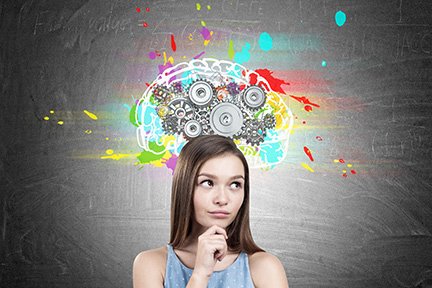What Makes The Teen Brain Different And Why You Should Know About It
Your day is filled with “nos,” “because I said so,” and “my decision is final.” You’ve been saying these phrases so much now that you are almost programmed for an auto-reply.
Your teenager never seems to listen to you anymore.
You ask multiple times for them to clean their room, and it still looks like a disaster. Asking them to take out the trash or do their laundry seems like starting World War III.
And you can’t even begin to fathom what would happen if you told them they couldn’t play video games or hang out with their friends.
Your friends and family warned you about the teenage years, but you honestly did not imagine it being like this.
The truth is, this newfound “attitude” may not entirely be your teenager’s fault. And before you start jumping to conclusions, don’t worry. It doesn’t mean that it’s your fault either. Here’s why.
Learn more about what makes a teen brain different and why you should know about it.
Teen Brains are Still Growing
It may feel like a lifetime ago, but you can probably recall a time when you, too, didn’t always get along with your parents. The truth is, you didn’t always listen to them. You probably heard your fair share of “nos” growing up.
But that may not have been entirely your fault either. Before you go running to call your parents to convince them you were a really good kid growing up, let’s dive into the difference between a teenage and adult brain!
The truth is that teen brains continue to grow and develop through their mid-20s. An adolescent brain is still developing and not fully mature. Similar to the changes their bodies go through, the brain is also going through changes of its own.
Teen Brains are Flexible
Since an adolescent brain isn’t fully developed or mature, that means it’s constantly changing and growing at a rapid rate. Teens can appear somewhat moody at times because their brain is wired to be this way.
The more experiences they take in sparks more opinions, creativity, and ways of thinking. During these years, your teen may be trying to figure out who they are, what their interests may be, as well as developing their social and emotional skills.
The somewhat intense emotions they may be dealing with are a good indicator of brain growth.
Teen Brains Have a High Dopamine Level
Your teenager may constantly be trying to search for new and exciting experiences. Although this could be related to their personality, it could also be a factor caused by their growing and flexible brain. The high dopamine levels in an adolescent brain can cause a teen to “feel good,” especially when getting involved in new experiences.
Teen Brains are Constantly Learning
Teenagers are programmed to learn at a fast pace. Because of the rapid growth of their brain during this time in their life, they need to have a lot of opportunities for learning, development, and taking in different kinds of information.
Don’t limit their learning to school or rely primarily on their teachers to do the work. Make sure that you, your family members, friends, colleagues, and other people that are close to your children are also giving them life lessons and taking the time to teach them important skills.
As a connected and engaged parent, you can do so much to help your child grow into the full capacity of their brains. They look so adult on the outside but still have so much growing happening on the inside! Contact us today to set up a consultation if you’re interested in connecting with your teen. As a parent, you can help guide, support, and create a healthy environment for their overall learning and development.

